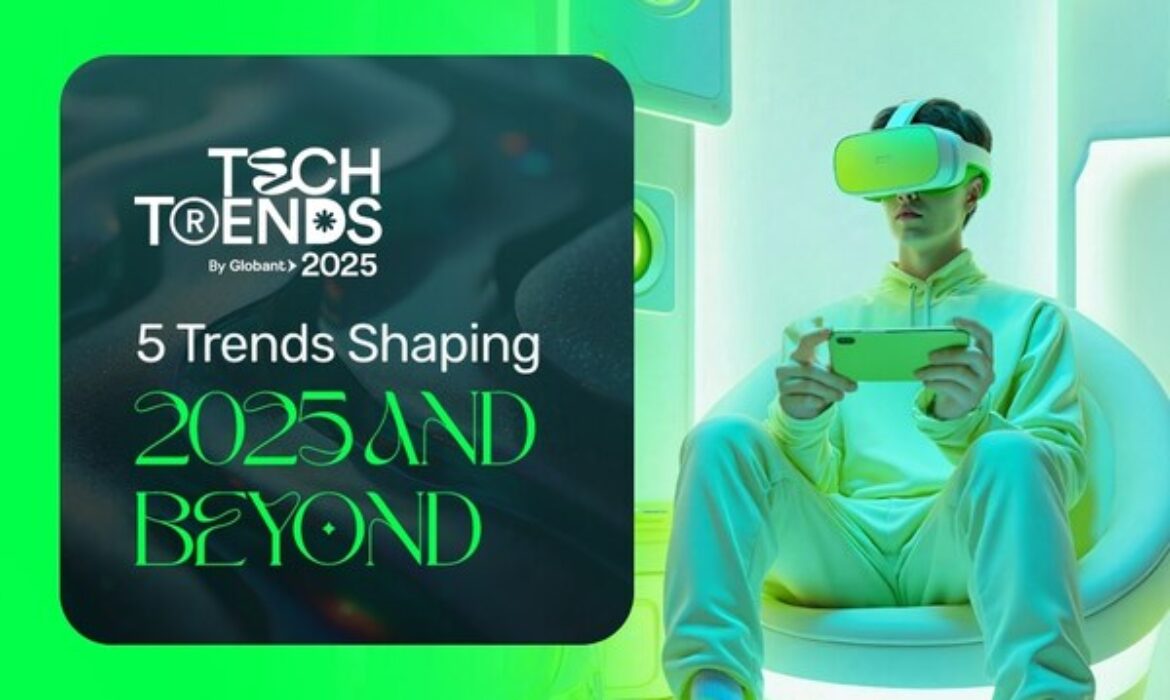As we progress through 2025, technology continues to evolve at a staggering pace, transforming every aspect of our personal and professional lives. From artificial intelligence to sustainable tech solutions, the digital revolution is creating opportunities, solving global challenges, and redefining the future. In this post, we’ll explore five major technology trends that are shaping our world right now—and will continue to influence the next decade.
1. AI Everywhere: From Assistants to Autonomous Systems
Artificial Intelligence (AI) is no longer just a futuristic concept—it’s a part of our daily lives. In 2025, AI is embedded into everything from smartphones and smart homes to business operations and healthcare diagnostics. Generative AI models like ChatGPT are powering customer service, content creation, and code development. Meanwhile, autonomous vehicles and AI-driven logistics are on the cusp of becoming mainstream. The focus now is on responsible AI—ensuring transparency, fairness, and safety as adoption grows.

2. Quantum Computing Is Getting Real
Quantum computing, once the domain of theoretical physics, is making practical strides. Major tech companies and startups are investing in quantum research to solve problems that classical computers can’t handle efficiently—like drug discovery, cryptography, and climate modeling. While it may take a few more years before quantum computers are widely usable, 2025 marks a tipping point in investment and development.
3. The Rise of Sustainable Tech
Green technology is no longer a niche—it’s a necessity. From energy-efficient data centers to eco-friendly hardware and carbon-neutral software, sustainability is a top priority. Tech companies are rethinking how products are designed, manufactured, and powered. Innovations in solar energy, battery storage, and circular economy practices are helping reduce the carbon footprint of the tech industry.
4. The Metaverse Evolves into the Spatial Web
The hype around the metaverse has cooled, but the core technologies—augmented reality (AR), virtual reality (VR), and 3D internet—are evolving into something more practical: the Spatial Web. Businesses are using immersive platforms for training, remote collaboration, and product design. As devices become more powerful and affordable, spatial computing could redefine how we interact with digital content in physical spaces.
5. Cybersecurity and Digital Trust Take Center Stage
With increasing digitization comes growing concern over security and privacy. In 2025, zero-trust security models, biometric authentication, and AI-driven threat detection are at the forefront. Consumers and businesses alike demand transparency and control over their data. Governments are also stepping in with new regulations, pushing for more accountability from tech companies.
Conclusion
Technology is not just a tool—it’s the foundation of modern society. As these trends unfold, they offer both exciting possibilities and significant challenges. Businesses that adapt quickly, ethically, and sustainably will be best positioned to thrive in this new era. Whether you’re a tech professional, entrepreneur, or enthusiast, staying informed and agile is key to navigating the future.

